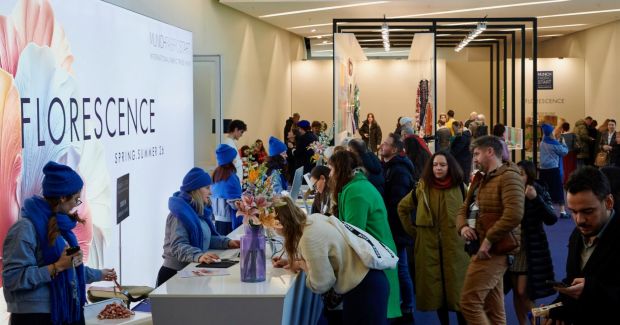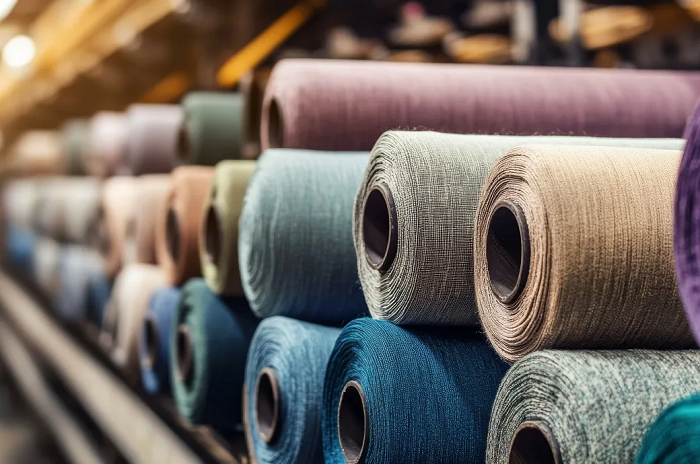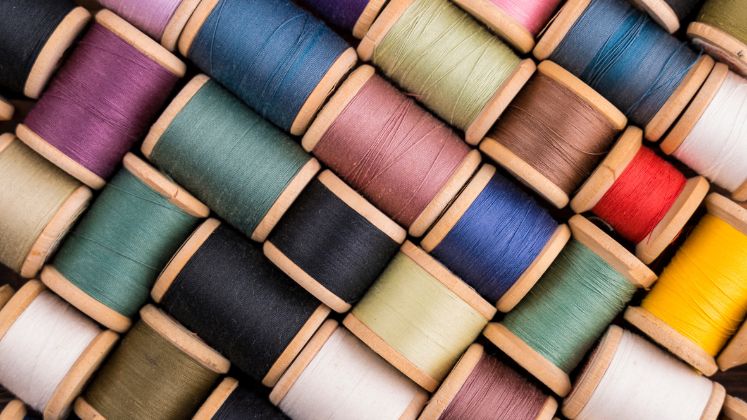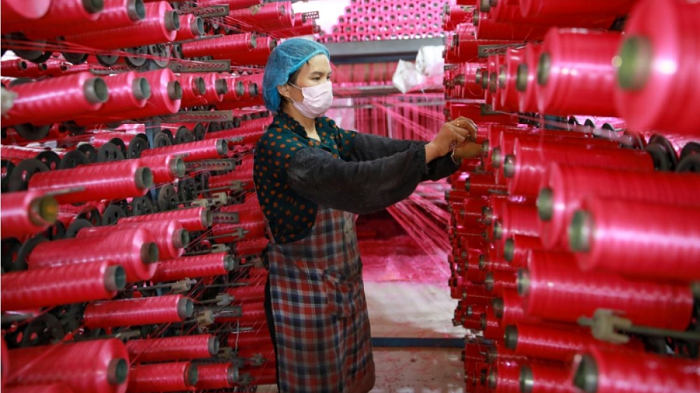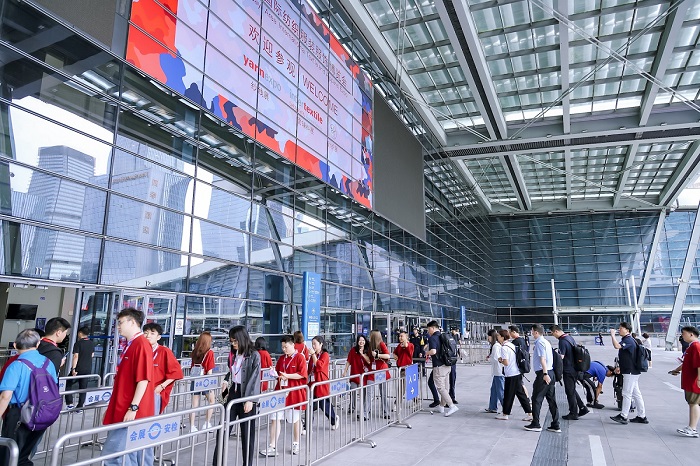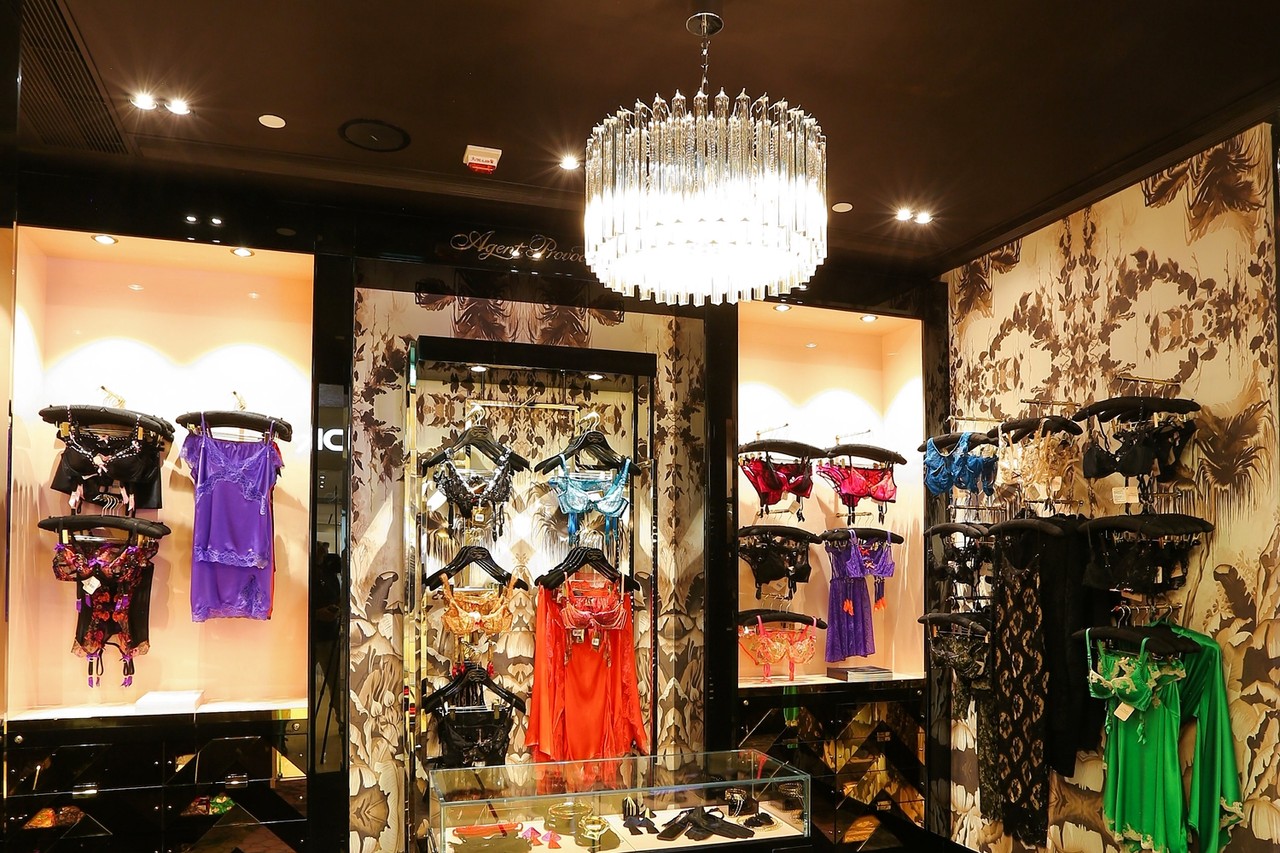FW
The melt down of Pakistan’s rupee against the US dollar has negatively impacted prices of raw cotton prices which rose by Pk Rs 200( 1.84 USD)/ (Rs 114.7)/40kg in the lower grade category and Pk Rs 100 ( 0.92 USD) / (Rs 57.40)/40kg in the higher grade category, in the Sindh and Punjab regions of the country. The Pakistani rupee value on October 31, 2013, was Pk Rs 106.86 (Rs 61.33) for one US dollar, which was quoted on November 30 at Pk Rs 108.46 (Rs 62.25) for one US dollar.
According to the Pakistan Cotton Ginners’ Association fortnightly report on cotton arrivals, the cotton arrivals into ginneries by November 15, 2013 remained 9.518 million bales compared with 8.519 million bales during same period last year depicting an increase of 11.73 percent year-on-year.
In 2012-13 cotton season, Pakistan’s cotton output fell by 12.81 per cent year-on-year to 12.915 million bales, compared to the previous season’s production of 14.813 million bales, mainly because of less sowing of the crop.
www.pcga.org
A new finishing technology that inhibits the development of odour-causing bacteria on textiles and clothing uses a thin film of water to create an anti-microbial barrier. The Pluma technology from Sanitized AG has been developed in conjunction with Empa, the Swiss Federal Laboratory for Materials Science and Technology.
Odours are generated by the metabolic by-products of naturally occurring bacteria and, for what is thought to be the first time, the Pluma technology has tackled the problem by inhibiting the build-up of bacteria on the fibre surface. The surface of the textile is coated with a special polymer that forms a microscopically thin film of water. This prevents bacteria from collecting on the textile fibres and ensures existing bacteria are rinsed away during hand or low-temperature washing.
The Pluma innovation has also received a Swiss Technology Award.
Sanitized AG already produces a range of antimicrobial fabric finishes used by companies including Levi Strauss, Marks & Spencer and Carhartt.
www.empa.ch
The government of Zambia is looking for local and foreign investors to invest in Mukuba Textiles and Swarp Spinning Mills in Ndola in a bid to revive their operations. The government is of the opinion that investments in these two mills will add value to the cotton industry in Zambia.
The move comes after shrinkage of cotton value chain led by closure of Mukuba Textiles and Swarp Spinning Mills several years ago. The aim now is to revamp Mukuba Textiles and Swarp Spinning so that the cotton value chain from production to ginning is complete and leads to employment generation.
Through a new strategy to rebuild the textile value chain, government will focus on promoting and showcasing the country's manufacturing potential yielding from crop diversification. It believes that this strategy would help in the industry go back to the days when cotton was one of the major sources of employment.
www.mukuba.com
As part of the 21st edition of the international textile and fashion fair, ‘Textile Salon 2013’, the government of the Russian city of Ivanovo conducted its first ever professional contest for tailors ‘Fashion Lab’, where they competed for the best home-tailored clothing collections.
The ‘Textile Salon 2013’ event, organized by the regional public organization club ‘Working Girl’, the government of Ivanovo region, Ministry of Industry and Trade of the Russian Federation, along with the support of the Association of Entrepreneurs of Textile and Garment Industry of Ivanovo and the National Academy of Fashion Industry (TITLE), saw participation from various textile and clothing enterprises from the Russian region as well as Belarus, Latvia, Poland and Germany.
Several seminars on new and emerging fashion and textile trends were also held parallel to the event where entrepreneurs exchanged information regarding the latest trends and technologies in garment manufacturing.
The depreciating value of Pakistani currency is forcing mills to build up their cotton inventories. A number of large textile groups including Indus Dyeing and others are said to have covered sizeable quantities of cotton in the domestic market. The recent 12-day strike by transporters has left many cotton and textile shipments stranded at ports in Karachi with zero shipment of textile goods to Europe, America and other destinations which were meant for Christmas sales. Funds of many mills are thus held up, in the process creating a liquidity shortage in the money markets. About 300 to 400 containers of cotton goods destined for China are waiting to be shipped.
Yarn stocks have also accumulated with mills. Prices of yarn are climbing. The transporters’ strike, which has now ended, has hurt spinners badly. There have been various estimates for the current cotton crop (August 2013 to July 2014) in Pakistan. Generally traders put it at 13 to 13.5 million bales but some sources even indicate an output between 14 and 15 million bales for the season. Mills may need 15 to 15.5 million bales for the season. Exporters may ship half a million bales while domestic mills may need to import 1.5 to two million bales.
The last edition of Denim by PV had had a great run in Paris. There was a lot of innovation in the denim previews for spring /summer 2015. The show presented a general return to vintage inspiration and a come-back of authenticity most often presented through a selection of dusty and sun-bleached blues and visible blue-white contrasts. Most impressive was the offer of special surface effects – obtained through laser geometric micro and macro designs and tattoo-effect patterns either obtained through contrasting colour patch applications, or printed or woven jacquard effects.
Deep blue, electric blue, dark black and a selection of greys are the must have colours, according to most companies. One company focused on deep black denim that doesn’t fade, as well on a selection of deep blues – in both cases they employ a coloured warp and weft for deep and long lasting denim shades. A variety of blues – from light blue to electric and oil blue-- is a real must.
A wide selection of accessories was also on show. Among the various specialists participating in the show was Labeltex, which launched a new selection of buttons and rivets for jeans that can be covered with most different leather types and that can also be aged, coloured and personalized with logos according to each brand’s own spirit or specific capsule collection.
The National Institute of Defense of Competition and Intellectual Property Protection (INDECOPI) in Peru has announced that there is no requirement for applying countervailing measures on imports of cotton from the US, as damage to the national cotton production was caused by other factors and not imports from the US. A statement issued by INDECOPI, after conducting a thorough investigation, the Committee on Antidumping and Subsidies (CFD) of INDECOPI has come to a conclusion that legal requirements are not met with to apply countervailing measures on imports of cotton from US, under the Grant Agreement of the World Trade Organization (WTO).
According to the investigation on imports of US cotton conducted by the INDECOPI, it was found that the domestic industry of Peru suffered material injury during the 2006-2011 period. However, it was determined that the damage was not due to the subsidy provided by the US Government on imports of cotton, but other factors such as the depreciation of dollar during the period and the elimination of tariffs in 2009.
In August 2013, INDECOPI had suggested a 10 per cent countervailing duty on US cotton imports, as well as antidumping measures on imports of Chinese clothing, as the domestic apparel manufacturers and cotton producers in Peru were adversely affected by these imports.
The readymade garment industry is exposed to risks of losing orders as buyers are staying away from visiting the country due to the ongoing political unrest, including frequent hartals, vandalism and arson. Orders particularly for the summer season, one of the major seasons for apparel exporters, would face a setback as apprehended by the manufacturers and exporters. “It’s high time for placing orders,” Salim Osman, President of Bangladesh Knitwear Manufacturers and Exporters Association (BKMEA) told media. “If we fail to grab orders now for lack of security for the buyers, we would lose orders for the next season.”
He said buyers would hesitate to come to Bangladesh if they see the recent attack on a buyer, who immediately left the country without placing orders. The Spanish buyer of knitwear products left Bangladesh without placing any order as he was assaulted by Jamaat-Shibir activists in the city. He came under attack on his way to Fatullah in Narayanganj to place order at a factory owned by BKMEA President Selim Osman, who urged the government to arrange special security measures for foreign buyers.
“A group of buyers, who generally place orders in Bangladesh through negotiation cancelled their Bangladesh visit recently as they felt insecure due to the political turmoil,” said Md Abdul Hamid, a negotiator between garment owners and buyers. “Last year I had lots of foreign buyers. But this year, it witnessed drastic fall only for security reasons,” he said. “If the buyers cannot come to Bangladesh to place orders, it will cast shadow over summer season orders,” said Reaz Bin Mahmood, vice president of BGMEA.
North America’s largest apparel fabrics show Texworld USA will have a complimentary three-day seminar presented by Lenzing Innovation. It will offer presentations ranging from sourcing, trends to sustainability and fibres. The event will be taking place at the Javits Center, in New York, from January 21 to 23, 2014.
The seminar will kick start on January 21st with ‘Navigating Texworld USA’ that will allow attendees to make the most of the show using skill and insight learned in this seminar. The highlights of the second day of the seminar programme include ‘Breaking News - The Top Textile and Apparel Stories’, with Edward Hertzman, Founder and Publisher of Sourcing Journal Online, reviewing the most pressing apparel and textile stories of the year.
There would be many other interesting presentations and seminars like the Stylesight’s Megatrends Spring/Summer 2015, the ‘Denim Innovation, the Speed and Movement of Color for Spring/Summer 2015, What’s in Your Clothes, and a seminar on Global Sourcing that will provide recommendations on how to successfully source worldwide.
All Pakistan Textile Mills Association (APTMA) chairman Yasin Siddique has sought removal of non-tariff barriers (NTBs) to boost bilateral trade with India. “We are in favour of promotion of trade with regional countries, especially with our neighbours to ensure peace, prosperity and economic revival,” Siddique said while speaking to visiting Indian journalists at the APTMA house.
He urged that India should open its market to Pakistani goods to normalise bilateral trade and capitalise on the potential for joint business strategies, particularly in the textile sector. Pakistan's business community had always supported granting of MFN status to India, however, the existing non-tariff barriers were hindering smooth flow of trade between the two countries. He urged India to remove NTBs to make MFN status a success.
The APTMA chairman suggested that Pakistan and India should harmonise their customs procedures for assessing in compliance with safety and quarantine standards. In this regard, special quarantine centres and laboratories should be established at border crossings, he added. He also asked Pakistani policymakers to take up the issue of non-tariff barriers with their Indian counterparts to ensure a level playing field for both sides.
www.aptma.org.pk




